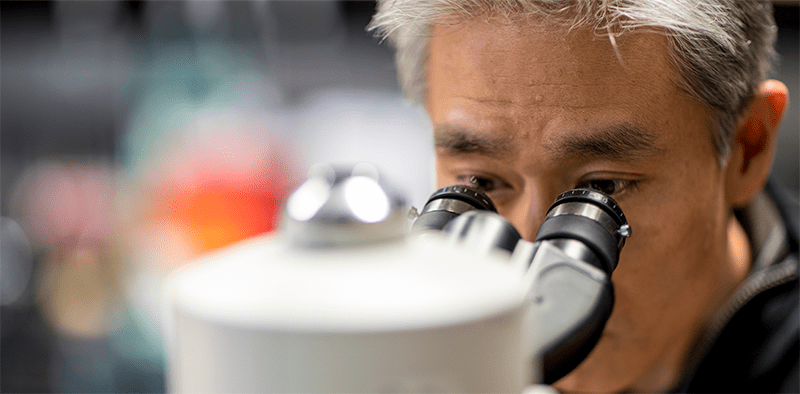Republished in part from UW Today article
Daniel Chiu, UW joint professor of chemistry and bioengineering, has been named a co-recipient of a “Transformative Research Award” from the National Institutes of Health’s High-Risk, High-Reward Research Program. The program funds exceptionally creative scientists proposing to use highly innovative approaches to tackle major challenges in biomedical research. The program supports high-risk ideas with high-impact potential, and applicants are encouraged to think outside the box and to pursue exciting, trailblazing ideas in any area of research relevant to the NIH mission.
Dr. Chiu shares his award with Joshua Vaughan, assistant professor of chemistry. They seek to develop radical new technologies for high-resolution mapping of brain tissue, including circuit-level spatial information down to a resolution of 50 nanometers and comprehensive analysis of the types of proteins present across large regions of the brain. These techniques are needed because it is technically difficult to directly detect large numbers of proteins in brain tissue.
Instead of trying to measure proteins directly, most approaches measure RNA molecules — a precursor to proteins. But RNA detection in spatially complex brain tissue has its flaws. Current approaches struggle with dim signals that are difficult to detect over background noise in complex, thick tissues. Chiu and Vaughan will develop new fluorescent probes to light up RNA molecules in tissues and will use a novel, large-area light sheet microscope — together with sample processing techniques — to rapidly probe large volumes of brain tissue at high spatial resolution.




